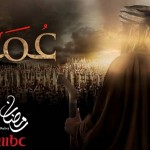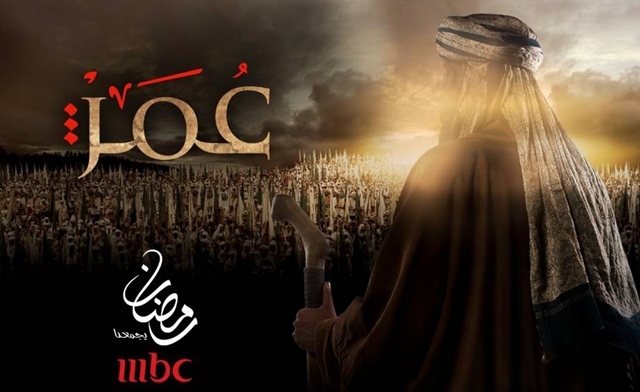
The big-budget drama Omar, jointly produced by MBC and Qatar TV, depicts the life of the titular Omar ibn Al-Khattab, the second and most powerful of the Rushidun caliphs and one of the most important figures in early Islamic history. It is written by Palestinian poet and scriptwriter Waleed Seif and directed by Syrian director Hatem Ali. Both men are known for making historical dramas and movies, but this one takes the cake.
Normally I tend to avoid Ramadan television dramas (mosalsalat). Overused themes, bad acting and weak plots are not my cup of tea and I am not a big television buff in general. Yet I find myself obsessively refreshing Saudi-owned TV channel MBC’s webpage every day so I may catch the latest episode of Omar.
The show takes the bold step of having actors depicting Omar and other sahabah (friends and companions of Islam’s Prophet Muhammad), which several clerics deem forbidden. As a result, it is banned in many Arab countries, including all Egyptian television channels.
The acting is superb, with the cast being composed of mainly Syrians, some Egyptians and other Arab actors, all relatively unknown or at least not high profile. Maher Ismail, who plays Omar, does a great job in the first seven episodes of balancing the character’s noble qualities with the fact that he is an enemy of Prophet Muhammad and bent on destroying Islam.
The show’s big budget is apparent from the offset as the Game of Thrones-esque opening credits start, showing a graphically rendered map of the Middle East before zooming in on scenes of very well made sets of Mecca and Egypt.
In the show, the Ka’aba is depicted exactly the way it is described in hadiths from the time, complete with a black sheet that does not fully cover it. The idols surrounding it correspond well with their descriptions in sources on pre-Islamic religion and Arab mythology. The chief god, Hubal, in particular is done very well and comes with his reported fitted gold arm.
It is too early in the series to properly judge, but from what I have seen in the opening credits, the battle scenes promise to be a thing unmatched by any Arab production so far.
There are two things that for me make the script this show’s best asset, though. First, the dialogue is impeccable. The Arabic the actors are using is beyond modern day fus’ha and is the closest thing to Classical Arabic I have heard, almost Qur’anic.
The attention to the minutest of historical details is the second. It is reported that Omar was left-handed, or at least ambidextrous, and while the show makes no mention of this, Ismail is always holding his staff with his left hand, unlike the remainder of the cast.
The show includes all the clans and sub-clans of the Quraysh tribe that most of the main characters belong to, introduced in a casual, non didactic method that still manages to be informative.
The script was reviewed by dozens of Islamic scholars and historians as the opening credits are sure to remind viewers by listing them, ensuring the most accurate retelling of Omar’s story possible.
It deals with depicting Prophet Muhammad in a much more realistic way than the traditional bright orb of light in the Islamic movies of yesteryear. Instead, the director relies on a mix of off-camera encounters and camera angles from either Prophet Muhammad’s perspective or situated in a way where he is not in the frame. You can tell what the Prophet has been saying through other character’s responses, rather than the traditional and awkwardly placed narrator.
Seeing as it deals with a story most of its viewers will already be familiar with, the series is more focused on details and the plot moves in a slower pace. Omar converts to Islam in the seventh episode and by the ninth the Muslims are yet to emigrate to Yathrib (later Al-Medina) even though the show is meant to depict Omar’s entire life, including his life under Prophet Muhammad and Abu Bakr’s rule, as well as his own time as caliph.
It is refreshing to see an Arab-produced historical (for I feel it is more historical than religious) work of such high quality. It combines good acting, a high-end production (tens of millions of dollars were reportedly spent on it) and brilliant writing. The controversy surrounding it is also sure to boost its viewership, be it on TV or online for those in countries where the series has been banned.




